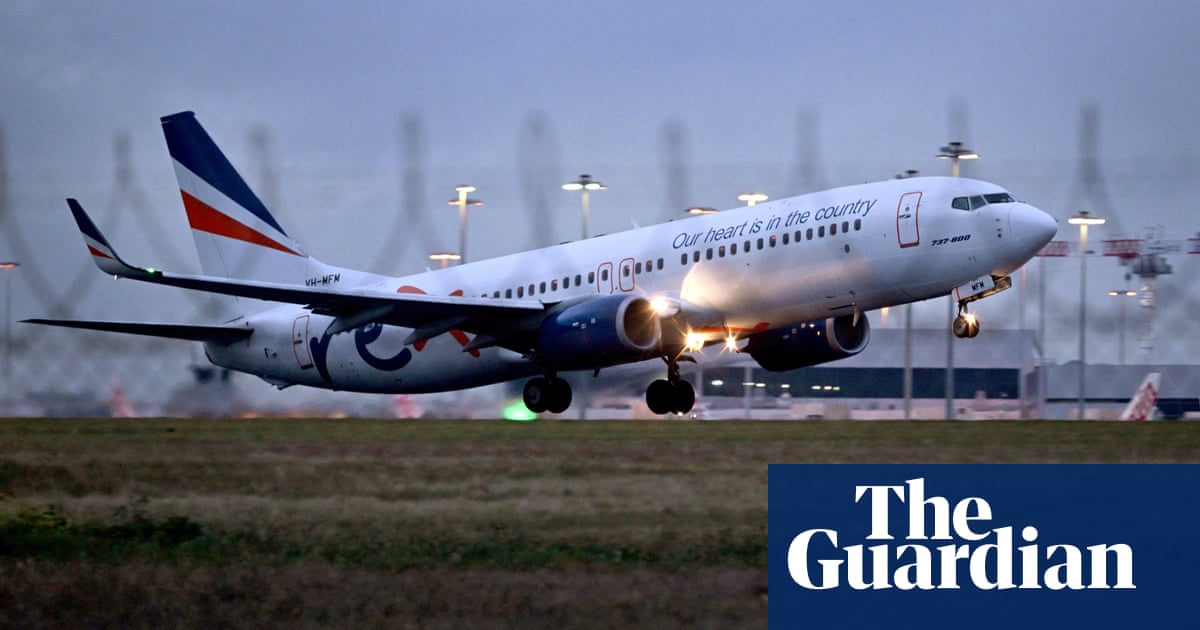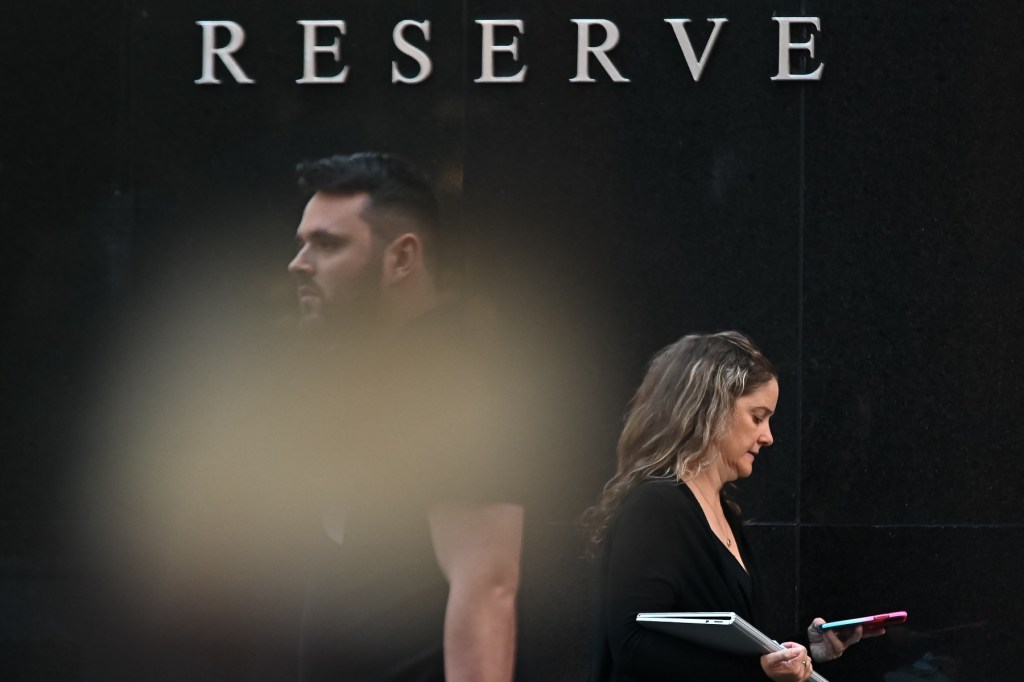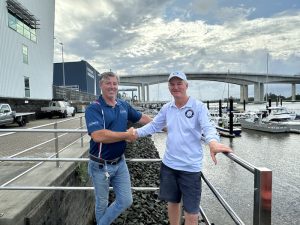Rex has stopped taking some bookings. Where to next for the embattled regional airline?

- by Admin
- July 30, 2024

There is uncertainty about the future of Rex – Australia’s third-largest airline – with speculation regarding its financial situation and tension among the leadership team.
The Albanese government held crisis talks with Rex on Tuesday and appeared willing to step in to save parts of the airline’s operations. Bloomberg reported that the carrier was about to appoint EY – formerly known as Ernst & Young – as administrators, citing people familiar with the matter.
Rex’s website was not taking bookings for its jet services between capital cities such as Sydney, Melbourne and Brisbane. Regional services could still be booked.
Rex and various board members declined to comment on Tuesday afternoon. EY was contacted for comment.
The airline entered a trading halt on Monday. The news follows the recent collapse of budget carrier Bonza in a market dominated by the Qantas and Virgin duopoly.
Rex is the only air link provider for many regional towns and its fares on capital city routes have been competitive with the major players.
So, how serious is the situation at Rex?
What has happened?
On Monday, the Australian stock exchange announced it had suspended trade in Rex’s shares at the airline’s request “pending it releasing an announcement”. Rex said the trading halt came ahead of an announcement “in relation to a news article published on Saturday”.
The article is understood to be a report in The Australian newspaper that the airline had appointed consultants from Deloitte to advise how it could turn around its financial woes.
The ASX and Rex said the halt was in place until the announcement or trading commenced on Wednesday morning.
How are regional leaders reacting?
Rex was still selling tickets to its regional services on Tuesday.
That did not prevent panic among regional communities, with rural mayors across Australia whose residents rely on Rex for connectivity warning of further isolation if the carrier went under.
In Eurobodalla council in New South Wales, Moruya airport is only serviced by Rex. The mayor, Mathew Hatcher, said he was hoping the government would ensure Rex’s future. “For our community, it would be a terrible blow to lose Rex,” he said.
Birdsville airport, about 1,600km west of Brisbane, also relies on Rex for connectivity, with two weekly flights to Brisbane. “If they were to close down, we would be devastated, it’s our only airline service … we rely on it for boarding school, medical appointments, recreation,” said Francis Murray, the mayor of Diamantina.
Meanwhile, leaders of larger regional centres feared airfare price hikes from Qantas if left without competition.
“They’re not just important, they’re crucial. This is our highway,” said the Devonport mayor, Alison Jarman, on the prospect of Qantas gaining a monopoly on connectivity to the Tasmanian town. “Qantas certainly won’t have a problem if they don’t have any competition.”
Why would Rex request a trading halt? Could it be bad news?
It’s not clear what Rex is going to announce although Bloomberg reported administrators were to be appointed.
Listed companies may request a trading halt in response to media reporting of market-sensitive information.
This is because the reporting could influence investors or potential investors who are privy to the information in the story – while others don’t have those details.
Significant announcements that could affect a company’s share price must be announced to the ASX – meaning everyone gets the same information at the same time.
Rex’s announcement could simply be confirming it has appointed consultants – as reported in The Australian – or it could be something more significant.
after newsletter promotion
Is Rex in financial trouble?
Rex in February reported a loss of $3.2m for the first half of the 2023-24 financial year, compared with a $16.5m loss in the previous six months. It said escalating costs, particularly for fuel, made it hard to predict full-year profitability.
Rex shares are worth about half of what they were a year ago and were trading at 56.5 cents before being halted.
Rex was initially called Regional Express following its formation after the death of Ansett. For most of its existence, Rex has been a purely regional carrier, operating 36-seater Saab 340 turboprop aircraft. About a third of its ageing 57 Saab 340s are not in operation pending repairs.
However, in 2020, Rex began vying for a share of the lucrative market between capital cities, seizing on the instability in Australia’s domestic aviation market which occurred when Virgin Australia entered administration and underwent a significant restructuring.
Rex leased nine Boeing 737 jets, including several formerly flown by Virgin, and launched routes between Sydney, Melbourne and Brisbane.
The airline boasted of these routes’ profitability and continued launching new routes including to Perth and Adelaide. Rex is now leasing nine 737s.
Over the same period, Rex has outperformed Qantas and Virgin to, at times, be Australia’s most on-time airline, and it also acquired a 50% stake in fly-in fly-out operator National Jet Express.
However, it has struggled with numerous issues, including allegations of anti-competitive behaviour by Qantas, and difficulty accessing strategically important Sydney airport slots at peak times – a gripe echoed by failed budget operator Bonza.
Rex has also confronted a shortage of parts to repair its ageing fleet of Saab 340 aircraft for its core regional operations, which have also been hampered by a shortage of pilots for the smaller planes.
Is Rex about to collapse? Or could something else be at play?
It’s too early to know, but aviation analysts stress airlines commonly bring in consultants to help improve efficiencies and increase profits in a fiercely competitive industry.
The Albanese government has suggested it will step in to ensure Rex continues to operate, at least regionally, but it is unclear if this will lead to the government taking a stake in the carrier, which already receives subsidies from various governments to operate key regional routes.
The federal transport minister, Catherine King, said on Tuesday afternoon: “We will work with Rex, we want to make sure that they have a future as part of aviation in this country, and we’re very determined to make sure that happens. We obviously don’t want to do that at any cost, we want to be involved very closely in what that future might look like.”
Rex has also been rocked by leadership tensions, with the major shareholder and former executive chair Lim Kim Hai ousted in June.
Lim was replaced by John Sharp, who had been the deputy chair of the board. Sharp, a former Nationals federal transport minister, has in recent years made headlines with his colourful criticism of Qantas and aviation policy.
Lim has since pushed to remove Sharp and three other directors from the board, with a special shareholder meeting to vote on Lim’s demands.
It is unclear if there is any connection between the leadership tensions and Rex’s financial woes.
The prime minister, Anthony Albanese, said he would consider proposals to save the company but added Rex already received substantial public funding with “no conditions attached”.
“One of the things I expressed concern about was having no conditions so Rex, for example, moved away from their traditional role of being a regional airline into flights, for example, from Sydney to Melbourne,” Albanese said on Tuesday.
The Latest News
-
December 25, 2024Our favorite golf memories from 2024 – Australian Golf Digest
-
December 25, 2024Where to watch Australia vs. India 4th Test: Free live stream, free-to-air channel, start time for cricket match | Sporting News Australia
-
December 25, 2024Gearing Up for Australian Open, Nick Kyrgios Elevated in Bold Predictions From Renowned Tennis Experts
-
December 25, 2024Dads’ day out! Australian stars unwind with with wives, kids at MCG. Watch | Cricket News – Times of India
-
December 25, 2024Border-Gavaskar Trophy: What is Australia’s record in Melbourne in Test matches? | Sporting News Australia



